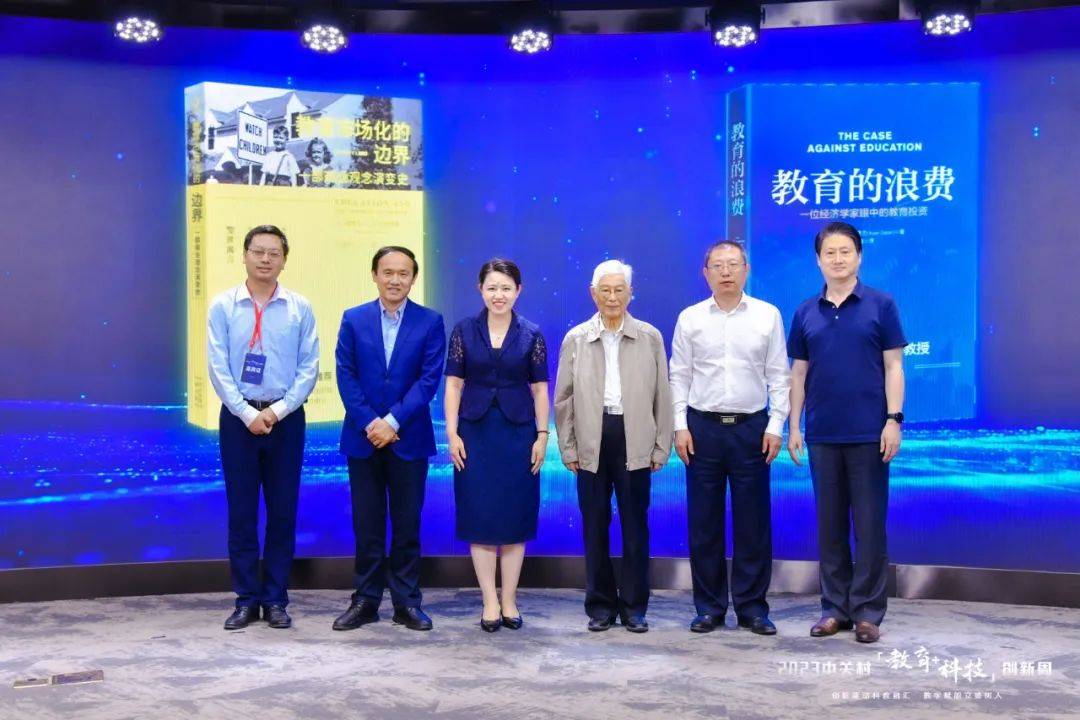Home >Technology peripherals >AI >How to tap the potential of artificial intelligence in educational innovation?
How to tap the potential of artificial intelligence in educational innovation?
- 王林forward
- 2023-06-07 08:02:02840browse
Artificial intelligence technology is profoundly changing human life style and will further promote the innovative development of education. In the age of digital intelligence, artificial intelligence technology brings more opportunities than challenges. How should we tap its potential in educational innovation while carefully dealing with possible problems and challenges?

On June 4, "New Opportunities for Education in the Digital Intelligence Era and "The Waste of Education" and "The Boundaries of Education Marketization" were jointly organized by the Chinese Translation Publishing House, Zhongguancun Internet Education Innovation Center and the China Education Thirty People Forum At the "New Book Press Conference", the participating experts collided with sparks of wisdom.
Ding Ruichang, associate professor of the Institute of International and Comparative Education of Beijing Normal University, Zhang Yibao, principal of Beijing Runfeng School, Ma Guochuan, secretary-general of the China Education Thirty Forum\Liu Yongchun, deputy editor-in-chief of the Chinese Translation Publishing House Co., Ltd., all agreed that mathematics intelligence In this era, the focus of education should be to cultivate comprehensive talents with innovative spirit, interdisciplinary ability, and teamwork ability, while using artificial intelligence technology to improve the quality of education, reduce education costs, and promote fair, high-quality, and efficient development of education.
It is understood that the Chinese Translation Publishing House focuses on cutting-edge technology, digital economy, education and other fields. The new book "The Waste of Education" is a reflection on the true returns of education and an exploration of the benefits of education from the perspective of an economist. The real value brought by society is explored. The author Kaplan's exploration of the future development direction of education, that is, the use of signal models to solve the puzzle of the real value of education is of groundbreaking significance; "The Boundaries of Educational Marketization" reviews the "Edison Plan" in the United States The evolution of the "Knowledge is Power" project, as well as the education reform process in different countries such as Chile, Sweden and Finland, has revealed that decades of market-oriented education reforms have not solved the problems originally envisaged, but schools can still learn from the business world Some experience. The two books examine the problems and challenges faced by education from different angles, and have important reference significance for the thinking and innovation of Chinese education.
The above is the detailed content of How to tap the potential of artificial intelligence in educational innovation?. For more information, please follow other related articles on the PHP Chinese website!
Related articles
See more- Technology trends to watch in 2023
- How Artificial Intelligence is Bringing New Everyday Work to Data Center Teams
- Can artificial intelligence or automation solve the problem of low energy efficiency in buildings?
- OpenAI co-founder interviewed by Huang Renxun: GPT-4's reasoning capabilities have not yet reached expectations
- Microsoft's Bing surpasses Google in search traffic thanks to OpenAI technology

